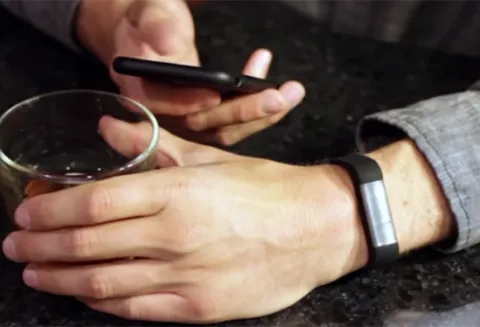NVC Winners, Milo Sensors, Receives $2M for Wearable Tech

‘A Real Vote of Confidence’
Student group-turned-tech-inventors Milo Sensors receives $2M for their wearable technology
Milo's wearable biosensor allows for alcohol tracking in real time
By Sonia Fernandez, UCSB The Current
Four years ago a team of enterprising UC Santa Barbara grad students came up with an invention that could monitor alcohol consumption in real time. The wearable biosensor was such a hit that the group, collectively known as Milo Sensors, took the top spot at UCSB’s annual Technology Management New Venture Competition, a showcase of talented young tech entrepreneurs looking to become tomorrow’s inventors.
Today, Milo Sensors, Inc. continues its win streak with a $2 million Small Business Innovation Research (SBIR) Phase II grant from the National Institute on Alcohol Abuse and Alcoholism (NIAAA) of the National Institutes of Health (NIH).
“Alcohol is involved in 5% of all deaths and does immeasurable damage to families and communities,” Bob Lansdorp, Milo CEO and principal investigator, said. Seeing a need for more awareness and intrigued by the potential of wearable technology to provide concrete information about alcohol usage, Lansdorp and fellow Milo teammates and UC Santa Barbara alumni Netz Arroyo, Daniel Imberman and Evan Strenk developed a biosensor that taps into the flow of molecules leaving the skin and sends continuous, real-time information via a cloud-enabled smartphone app.
The invention has since captured national attention, receiving the NIH $100,000 Challenge Prize in 2016 and an NIAA $223,000 SBIR Phase I grant in 2017. Milo Sensors also received the $75,000 Grand Prize at the UC Startup Showcase in 2018.
The Phase II SBIR grant is “a big deal,” according to Tal Margalith, executive director of technology at UCSB’s California NanoSystems Institute (CNSI), which hosts the wet lab incubator where Milo conducts its research and development activities. “The grant is a real vote of confidence in the technology and is non-dilutive,” he said of the funding, which does not require the company to relinquish any equity in order to receive it.
The award, Margalith continued, will let Milo move on from incubator phase to establish a presence in Santa Barbara/Goleta. “It represents what we want for the UCSB Innovation & Entrepreneurship program participants: They won the NVC, went on to incubate at CNSI, then spun out.”
The peer-reviewed grant will allow the company to accelerate research and development and engineering efforts by hiring experts to join the team and consultants to augment capabilities; it also will fund clinical research to independently validate sensor performance. According to Milo Sensors, testing of the cuff-type wearable is already underway with pre-beta test units in the hands of researchers around the globe. In the coming years, the company will work with strategic partners to add wearable alcohol sensing to Alcohol Use Disorder treatment.
“Over $12 billion is spent on Alcohol Use Disorder treatment every single year in the U.S. alone,” Lansdorp said. “We are excited by the opportunity to advance evidence-based alcohol monitoring technology to solve real-world problems.”

 Instagram
Instagram LinkedIn
LinkedIn Twitter
Twitter